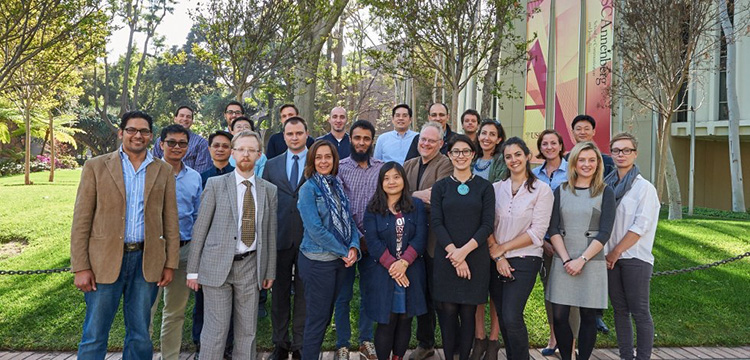Nora Abusitta, icann.org

uncaptioned image from article
ICANN's growth and continued globalization efforts have created many opportunities for internal and external cooperation and collaboration. These elements are the core of ICANN's Development and Public Responsibility Department's (DPRD) efforts to strengthen the multistakeholder Internet governance model by supporting, broadening and diversifying its stakeholder base.
ICANN's global nature means that many of the issues it faces are multidimensional. There are no one-size-fits-all solutions. Often, ICANN must employ innovative approaches that take into account local needs, while respecting and balancing those of the broader Internet governance ecosystem. In pursuing innovation, DPRD serves as an incubator and testbed for new ideas. Many of these efforts take the form of pilot projects. DPRD also hosts ICANN Learn – an open, online learning platform designed to maintain institutional knowledge, provide connection with peers, and increase understanding about how the ecosystem works.
Broadening ICANN's prospective stakeholder base requires understanding the importance and nuances ofICANN's work in the local context. When viewed through this lens, it becomes clear that for ICANN to carry out its mission successfully, it must invest in contributing to a healthy Internet governance ecosystem.
Over the past two years, through targeted, collaborative partnerships with relevant actors, DPRD has enabled mechanisms to empower stakeholders. These mechanisms have led to greater participation inICANN processes, particularly for stakeholders from developing regions. DPRD's flagship programs, theFellowship Program and NextGen@ICANN, have consistently delivered on this objective.
More recently, DPRD partnered with the University of Southern California (USC) Annenberg School for Communication and Journalism to hold the first Spring Institute in Internet Diplomacy, from 13–19 March 2016. The idea for this collaboration came from my own experience at the USC Summer Institute of Public Diplomacy four years ago. At this event, after years as a public diplomacy practitioner, I was reacquainted with the many public diplomacy strategies available to address a wide range of global issues. I also felt a need to inform decision-makers from across sectors and geographies about the challenges presented by the speed and international nature of the Internet. These issues will require increased, long-term cooperation from a multitude of actors and networks.
ICANN's involvement in this project is a clear signal of its commitment to improving understanding about the multistakeholder model and to exploring synergies with other fields. The USC course was an opportunity to start establishing a new generation of global advocates for multistakeholder governance. Participants were supplied with the tools necessary to explore new channels for effective communication and collaboration.
The immersive week-long course brought together distinguished speakers to exchange views and examine the socioeconomic and political implications of Internet-related issues. A considerable amount of class time was taken to discuss public diplomacy and public engagement issues and approaches. Academics explored topics beyond their own areas of expertise, promoting greater understanding and exploring commonalities. The program drew 20 participants from 13 different countries – from civil society, government, the private sector, and technical and academic communities. The group benefitted from learning about proven methods and frameworks. This was also an opportunity to create a network of academics and practitioners that could further collaborative efforts for years to come.
The Spring Institute is a good example of a pilot program with tremendous potential. In addition to serving as a springboard for future collaborative efforts among diverse stakeholders, programs like this can also promote a better understanding of the complexities and benefits of multistakeholder governance. Internet diplomacy remains a largely uncharted territory. The infusion of public diplomacy tools into the Internet governance space could encourage new partnerships and strengthen existing collaborations – with a goal of addressing current and future Internet issues. Innovative approaches that transcend traditional models of cooperation are imperative to meet and adapt to the needs of an evolving ecosystem.
With this in mind, we are exploring the option of holding another Institute on Internet Diplomacy sometime in 2017. Stay tuned for more information in the coming months!
Please email questions, suggestions or general feedback to dprd@icann.org.
Nora Abusitta
SVP, Development & Public Responsibility Programs, ICANN
SVP, Development & Public Responsibility Programs, ICANN
No comments:
Post a Comment